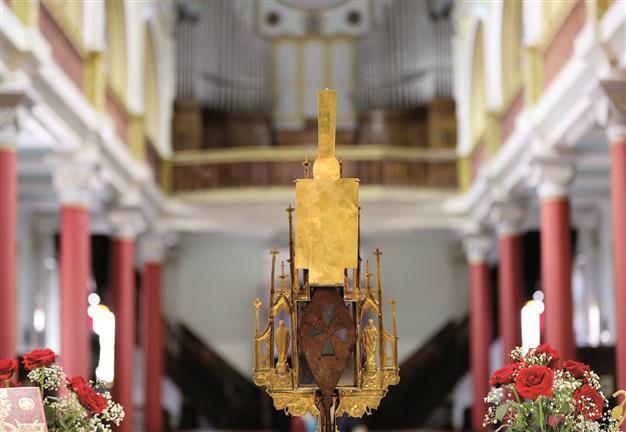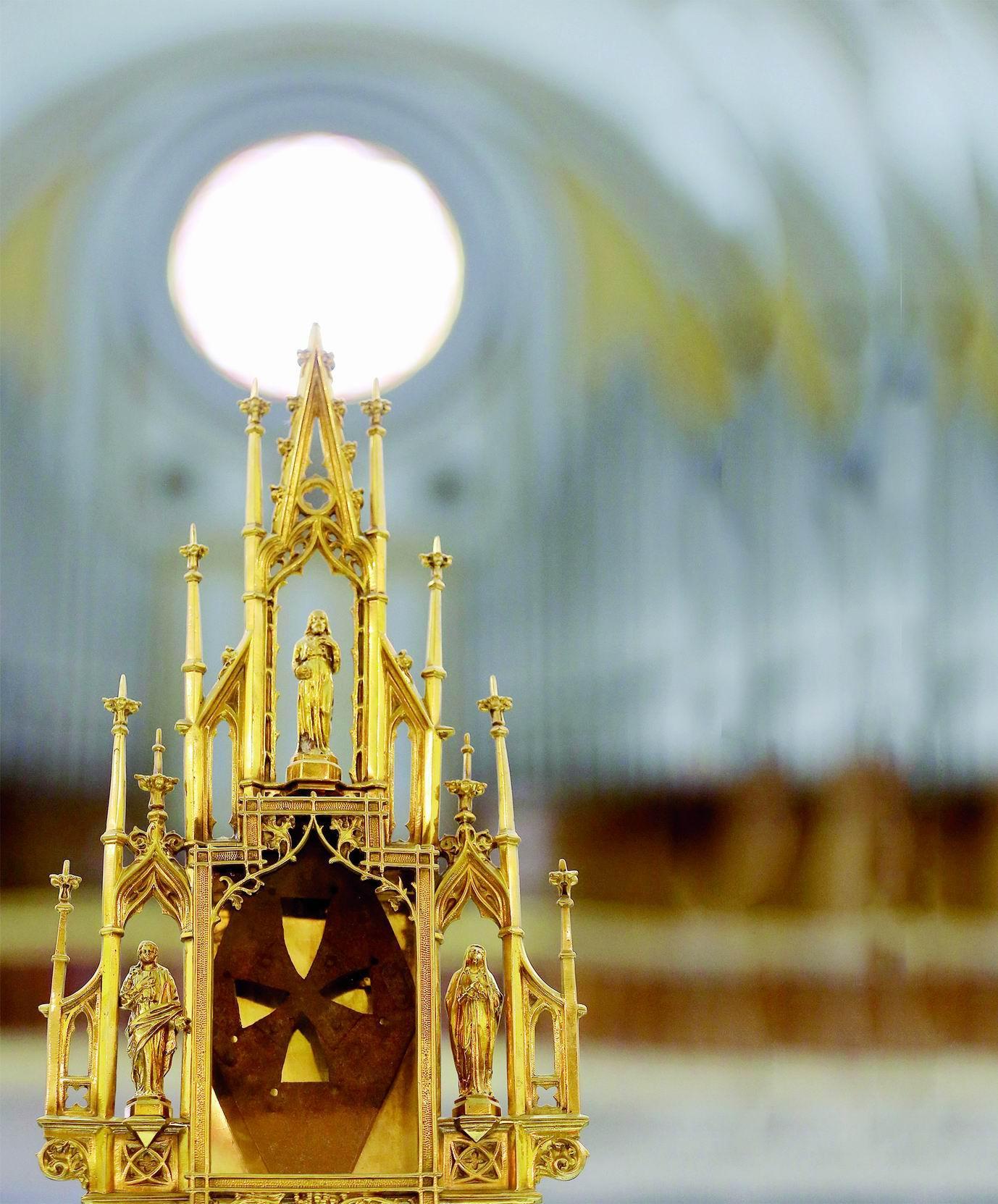İzmir Catholic church home to holy lance
İZMİR - Anadolu Agency

The priest of the church, Stefano Negro, says the originality of the lance was traditionally approved and sealed by the Vatican and that the seal of the document on the history of the lance, cannot be opened. AA Photo
The Holy Lance, which is believed by Christians to have pierced the side of Jesus as he hung on the cross and became a legend, is being kept in İzmir’s Santissimo Rossario Catholic Church as a relic.
The priest of the church in Alsancak, Stefano Negro said the Gospel of John mentioned the lance, known to Catholics as the Spear of Longinus. “In the Bible, we see John’s testimony. Jesus died after three hours of pain. Everyone was surprised how fast he died because it is a painful and long manner of execution. The Roman soldier who saw that Jesus died and wanted to prove it pierced his side with the lance,” he said.
Noting that the first state that recognized Christianity was an Armenian state, Negro said the first relics from the life of Jesus had been collected by Christians and these relics had been kept in the Nakhchivan region.

He said that the Dominican priests began establishing the Catholic society in the 1300s and the region became a Catholic area. “As of the 1600s, Armenians began migrating to the Ottoman Empire. The Dominican priests who also sought asylum in the Ottoman Empire in the 1720s moved to İzmir with relics. They were hosted in the Saint Polycarp Church with the relics and the holy lance for many years. Then the lance was taken to the Santissimo Rossario Catholic Church, which was established 110 years ago,” he said.
Vatican-approved relic
Negro said the relics had been moved throughout history, and continued: “We don’t have a mathematical proof, but it was determined that the lance dates back to the 1st century. What was told and the wound of Jesus confirm the holy lance according to the church. There are three known holy lances; we know that one of them is in our church in Vienna. Nobody knows which one is the original.”
There are three classes of sacred relics. The first-class is a part of the saint’s body, the second-class is a piece of the saint’s clothing or something used by the saint, while the third-class is an object which has been touched to a first-class relic. The class of the lance in the İzmir church is not clear.
Feeling the pain Jesus suffered Churches were raven for relics in the Middle Ages, said Negro, adding, “Churches were considered as rich as their relics.”
He said some religious scholars who had examined the lance in their church were sure that it was the original mentioned in the mythos and this claim was officially documented in the 1800s. “The originality of the lance was traditionally approved and sealed by the Vatican and the seal of the document, which tells the history of the lance, cannot be opened.”
Negro said the legend of lance dated back to the 3rd-4th centuries and the approval dated back to the 15th century.
The relics meant respect for their society, said Negro, and the Spear of Longinus reminded of the pain Jesus had suffered. “While commemorating the day when Jesus died, we put the lance’s protective case on the altar. After the prayer, we decorated the holy lance with flowers. In this way, we show believers Jesus’ pain better,” Negro said.

 He said that the Dominican priests began establishing the Catholic society in the 1300s and the region became a Catholic area. “As of the 1600s, Armenians began migrating to the Ottoman Empire. The Dominican priests who also sought asylum in the Ottoman Empire in the 1720s moved to İzmir with relics. They were hosted in the Saint Polycarp Church with the relics and the holy lance for many years. Then the lance was taken to the Santissimo Rossario Catholic Church, which was established 110 years ago,” he said.
He said that the Dominican priests began establishing the Catholic society in the 1300s and the region became a Catholic area. “As of the 1600s, Armenians began migrating to the Ottoman Empire. The Dominican priests who also sought asylum in the Ottoman Empire in the 1720s moved to İzmir with relics. They were hosted in the Saint Polycarp Church with the relics and the holy lance for many years. Then the lance was taken to the Santissimo Rossario Catholic Church, which was established 110 years ago,” he said.